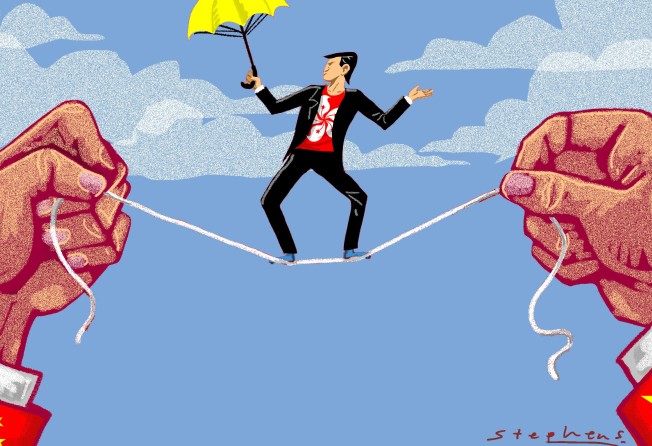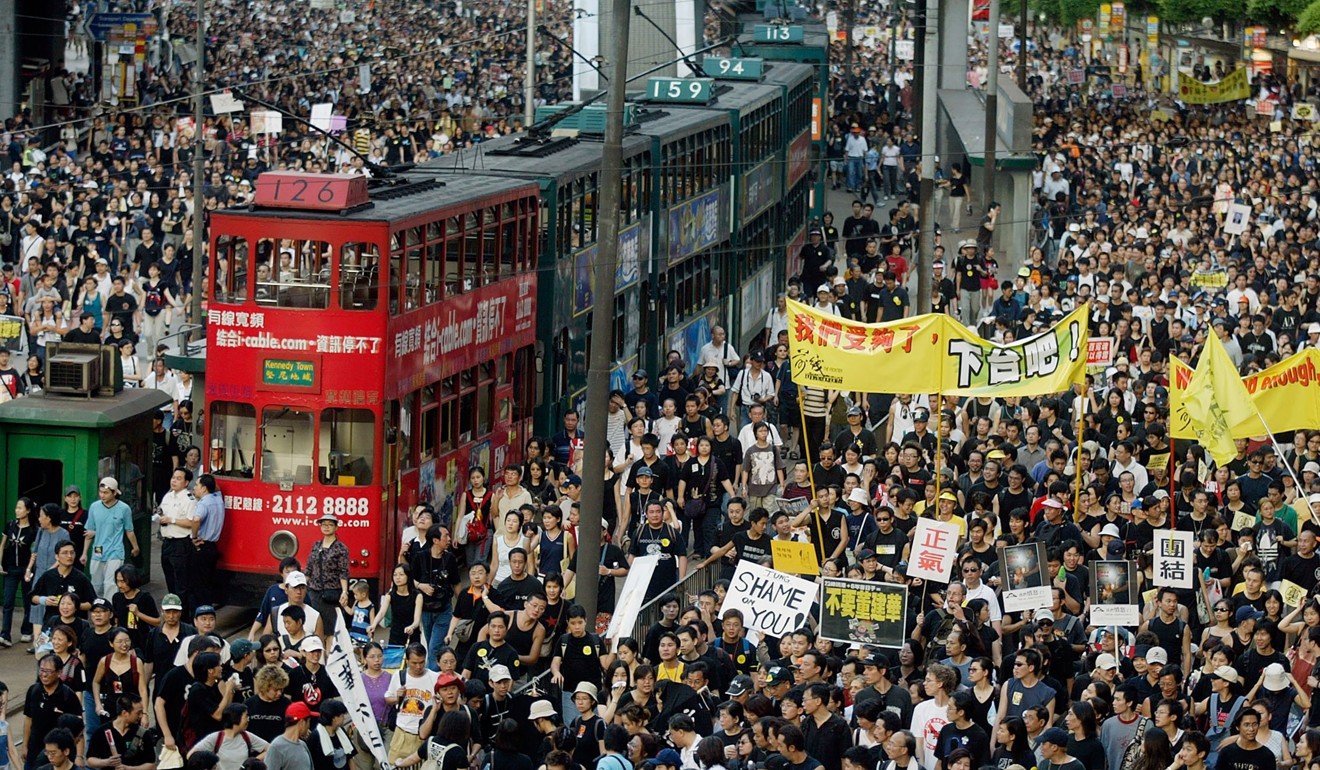Hong Kong must walk a tightrope between its desire for freedom and Beijing’s national security concerns
Fu Hualing says Hong Kong needs to ensure that, in its journey towards reconciling two seemingly contradictory constitutional imperatives, Beijing does not become the enemy

There are two imperatives that shape Hong Kong’s constitutional development: its high degree of autonomy and China’s national security. Should a free and “semi-democratic” Hong Kong protect the security of an authoritarian state and can Hong Kong offer such protection without compromising its value and integrity? Should Hong Kong legislate to protect the security of China’s political system and, if so, how will it reconcile the two conflicting and seeming irreconcilable imperatives?
For the central government, there is a genuine fear among top decision-makers that there are national security risks in Hong Kong which the city has turned a blind eye to. As China’s economy grows, it becomes more confident and assertive. When managing Hong Kong affairs, it has started to insist that the special administrative region take China’s national security and other interests more seriously.
In 2003, under the instruction of the central authorities, the Hong Kong government proceeded to draft a national security law to comply with a Basic Law requirement, which demands that Hong Kong legislate “on its own” to prevent and punish activities endangering China’s national security.
The legislative process proved to be difficult and the proposed law came up against strong and well-organised resistance. While the proposed law complied with international human rights requirements and was tightly drafted, it was nevertheless not regarded as acceptable.
There was just not enough political trust towards the communist government on the mainland. Half a million people took to the streets to demonstrate their discontent towards the proposed law, sending a strong signal that China’s national security was not considered a significant issue in the eyes of Hongkongers. Faced with a massive and well-orchestrated protest, the government was forced to withdraw the bill.
Watch: What is the Basic Law of Hong Kong?
While Hong Kong was celebrating the victory and the opposition, riding on the tide of its success, was making political gains by winning legislative seats and shifting its battlefield from anti-security legislation to democracy promotion, China saw the episode as a wake-up call and started to reflect on its policy failure.
Seven months after Hong Kong denied China the national security law it wanted, the Standing Committee of the National People’s Congress made a landmark interpretation of the Basic Law, entirely of its own volition, on the election of the chief executive and members to the Legislative Council. In that aggressive and cleverly-drafted interpretation, the central authorities took away the agenda-setting power in initiating constitutional reform from Hong Kong.
The political atmosphere was polarised in the aftermath of the 2003 protest and the 2004 interpretation, with each side escalating their contention. China, having taken away Hong Kong’s agenda-setting power, empowered itself to create a road map and set a timetable for the city’s democratic process.

To deliver the final blow to Hong Kong’s democratic pursuit, the NPC Standing Committee in 2014 narrowly defined the meaning of universal suffrage, effectively ruling out any possibility of members of the opposition participating in the 2017 chief executive election. Holding the power to issue interpretations of the Basic Law that cannot be challenged, the central government has consolidated and expanded its political influence by shaping Hong Kong’s constitutional development aggressively. Hong Kong, on the other hand, escalated the scale of protests.
Having tasted the victory of protest in 2003, the opposition in Hong Kong intensified its extra-institutional mobilisation to express and assert its political demands, leading to the 2012 anti-patriotic education movement, which led to the withdrawal of a government proposal to enhance the component of national education in school curriculums, and two years later, to the Occupy Central movement launched in response to the 2014 interpretation.
Watch: How Hong Kong’s Occupy protests kicked off
The failure of Occupy Central to gain concessions radicalised certain youth wings of the pan-democratic coalition. They began to advocate Hong Kong independence. This helped generate an unprecedented level of panic and anger in Beijing, leading to a systematic crackdown that continues today.
Finding common ground that allows room for both freedom and national security is difficult but not impossible
“One country, two systems” is an extraordinary and adventurous design that will collapse if not managed well. China, under the rule of the Communist Party, has never been a politically free society. Hong Kong’s elite has only looked at the Communist Party from a long distance. Each has its blind spots and comfort zones. There are extreme views on both sides: for Beijing, advocacy for democracy itself may be regarded as a threat to national security; for Hong Kong, the Communist Party is merely using national security as a pretext for extending its rule.
There is an inherent tension in the “one country, two systems” design, and finding common ground that allows room for both freedom and national security is difficult but not impossible. Hong Kong has no choice but to manage the delicate relations with the central authorities. Indeed, its political survival depends on maintaining comity with Beijing.
Beijing and Hong Kong have different, sometimes adversarial, viewpoints on a range of issues. These differences need to be worked out within the Basic Law framework. The worst mistake that Hong Kong can make is to turn Beijing into an enemy.
Fu Hualing is professor of law and holder of the Warren Chan Professorship in Human Rights and Responsibilities at the Department of Law, University of Hong Kong. He specialises in constitutional law, legal institutions, and human rights with a focus on China